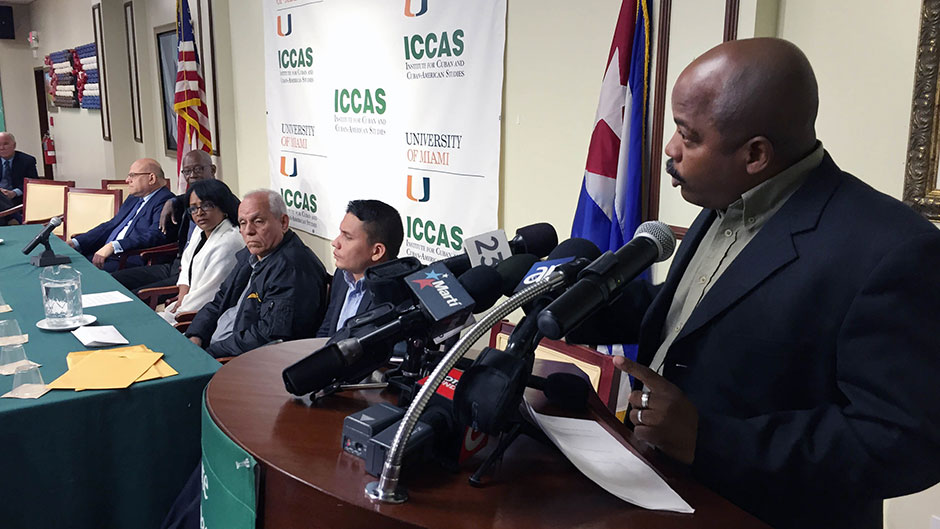The University of Miami’s Institute for Cuban and Cuban-American Studies (ICCAS) hosted a historic meeting on January 27 of 13 Cuban dissidents—representing more than 30 groups on the island—who came to Miami to call for a dialogue with members of the exile community that they hope will lead to a democratic Cuba.
“We represent a wide range of the views inside of Cuba, and we want to send a clear message that Cubans living on the island and those in exile need to work together toward a democratic future for Cuba,” said Manuel Cuesta Morua, who heads the group
Arco Progresista, or the Progressive Arc. “What matters now is our nation.”Welcoming the dissidents to the UM campus, ICCAS Director Jaime Suchlicki said, “As an academic center, ICCAS will always welcome these Cubans who are fighting for freedom. Their mission is to unite efforts and create a common political platform, and we’re glad to open up our neutral venue so they may discuss their goals.”
Other dissidents at the meeting included Dagoberto Valdés, editor of the magazine
Convivencia, (Coexistence), attorney Laritza Diversent, and Eliecer Avila, leader ofSomos Mas, or We are More.
The dissidents, whose unprecedented visit was prompted by the U.S. decision to normalize relations with Cuba and the subsequent visit of American diplomats to the island, invited interested parties to another historic meeting that took place at the Cuba Ocho Art and Research Center in Little Havana the following day. About 150 exiles showed up to that meeting, where they called for an end to political repression in Cuba, the release of all political prisoners, respect for all United Nations human rights covenants, and the active participation of ordinary Cuban citizens in developing a new democratic society.
After much deliberation, Morua said, participants at the Little Havana meeting agreed to establish a working roundtable that would include members of the Cuban and Cuban-American community. They also agreed to create a website to keep communication channels open and to draft a proposal for the democratization of Cuba that could be presented at the 2015 Summit of the Americas in Panamá in early April. After many years of absence, Cuba is slated to participate in this year’s summit.

